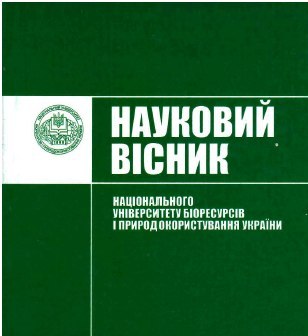Interaction Of Ethnic, Conceptual And Linguistic World Views
DOI:
https://doi.org/10.31548/philolog0(257).2016.082%20-%2089Abstract
In recent decades, one of the most important areas of linguistics has been the study on depiction of a complete picture of the world in the mind of a person which is fixed by the language. To solve this problem, it is important to find out the relation between ethnicity and conceptual and linguistic picture of the world. The article suggested the definition of mentality, which is understood as a worldview in the categories and forms of the native language, combines the intellectual, spiritual and volitional qualities of national character typical of its manifestations; it describes the concept as a unit of mental activity, the quantum of structured knowledge. Solving the problem of the relation of conceptual and language pictures of the world, scientists have come to the conclusion that the language picture of the world is preceded by conceptual and forms it, because a person is able to understand the world and oneself through a language. At the same time, a conceptual picture of the world is much richer than the language one. The same language and the same socio-historical experience form similar language picture of the world within the members of a particular society. That allows us to speak about a generalized ethnic language picture of the world. Different languages give the pictures of the world only some specific, some ethnic flavor, due to the cultural and climatic conditions of life, ethnic significance of objects, phenomena, processes, selective attitude toward them, which is generated by the specificity of activity, lifestyle and culture of the people.
References
Antologiya konceptov [Anthology of concepts] / Ed. by Karasik, V. I., Sternin, I. A. (2005). Volume 2 – Volgograd, Paradigm, 356.
Babenko, E. V. (2016) Osobennosti mnogourovnevoy strukturyi yazyikovoy kartinyi mira [Features of multi-layered structure of a language picture of the world] Universalnoe i natsionalnoe v yazyikovoy kartine mira: materialyi Mezhdunar. nauch. konf. [Universal and national aspects of the language picture of the world], Minsk, 2- 3 Oct. 2015 / Editorial Board. : N.V. Furashova (otv. red.), N. E. Lapteva, E. V. Zuevskaya. – Minsk : MSLU, 18-20
Boldyrev, N. N. (2004). Kontekstual'noe prostranstvo kognitivnoj lingvistiki. [Contextual space of cognitive linguistics] // Issues of cognitive linguistics №1. 18-36.
Vakulyk , I.I. (2011) Osoblyvosti formuvannia movnoi kompetentsii yak proiav etnokulturnoho kodu [Features of formation of linguistic competence as a manifestation of ethnic and cultural code]. Filolohichni studii [Philological studies].6,694-698.
Vakulyk, Y. Y. (2013). Formyrovanye nauchnoi kartyni myra v sovremennom yazykovom prostranstve [Formation of a scientific picture of the world in the modern language space]. Movni i kontseptualni kartyny svitu [Language and conceptual world views], 43 (1), 203-209.
Gurevich, A. Ya. (1984). Kategoriya srednevekovoj kul'tury [Category of medieval culture]. 2nd ed. and ext. Moscow, Iskusstvo, 350.
Drach, G. V., Shtompel, O. M., Shtompel, L. A., Korolev, V. K. (2010). Kul'turologiya: Uchebnik dlya vuzov [Cultural Studies: Textbook for universities]. St. Petersburg, Piter, 384.
Kubryakova, E. S. (1992). Problema predstavleniya znanij v sovremennoj nauke i rol' lingvistiki v reshenii ehtih problem [The problem of representation of knowledge in modern science and the role of linguistics in solving these problems]// The language and structure of knowledge representation. Moscow, INION.
Lebedev, M. V. Stabil'nost' yazykovogo znacheniya [Stability of linguistic meaning]. Access: www.philosophie.ru/lebedev/texts/stabilit.html.
Leontiev, A. A. (2005). Osnovy psiholingvistiki: monografiya [Fundamentals of psycholinguistics: monograph]. Moscow, 246.
Likhachev, D. S. (1997). Konceptosfera russkogo yazyka [Conceptual sphere of Russian language] // Russian Literature: An Anthology. Moscow, Academia, 28-37.
Maslovа, V. A. (2005). Kognitivnaya lingvistika: ucheb. posobie [Cognitive linguistics: manual]. 2nd ed. Moscow, TetraSistems, 256.
Maslovа, V. A. (2001). Lingvokul'turologiya: uchebnoe posobie [Cultural linguistics: a manual]. Moscow, 196.
Pavilionis, R. I. (1983). Problema smysla: sovremennyj logiko-filosofskij analiz yazyka [The problem of meaning: the modern logical-philosophical analysis of language]. Moscow, Thought, 286.
Polyanichkina, G. A. (2006). Ehtnografiya: ucheb. posobie [Ethnography: guidance manual]. Rostov-upon-Don, Phoenix, 159.
Sapir, E. (1993). Status lingvistiki kak nauki // Izbrannye trudy po yazykoznaniyu i kul'turologii [Status of Linguistics as a science // Selected works on linguistics and cultural studies]. Moscow, 259-265.
Serebrennikov, B. A. (1983). O materialisticheskom podhode k yavleniyam yazyka [About materialistic approach to the phenomena of language]. Moscow.
Telia, V. N. (1988). Metaforizaciya i eyo rol' v sozdanii yazykovoj kartiny mira [Metaphorization and its role in the creation of a language world view]/ The role of human factor in language. The language and world view. Moscow, 173-204.
Ter-Minasova, S. G. (2000). Yazyk i mezhkul'turnaya kommunikaciya [Language and Intercultural Communication]. Moscow, Word/ Slovo, 624.
Cherneyko, L.O. (1997). Lingvo-filosofskij analiz abstraktnogo imeni [Linguistic and philosophic analysis of an abstract name]. Moscow.
Downloads
Published
Issue
Section
License
Relationship between right holders and users shall be governed by the terms of the license Creative Commons Attribution – non-commercial – Distribution On Same Conditions 4.0 international (CC BY-NC-SA 4.0):https://creativecommons.org/licenses/by-nc-sa/4.0/deed.uk
Authors who publish with this journal agree to the following terms:
- Authors retain copyright and grant the journal right of first publication with the work simultaneously licensed under a Creative Commons Attribution License that allows others to share the work with an acknowledgement of the work's authorship and initial publication in this journal.
- Authors are able to enter into separate, additional contractual arrangements for the non-exclusive distribution of the journal's published version of the work (e.g., post it to an institutional repository or publish it in a book), with an acknowledgement of its initial publication in this journal.
- Authors are permitted and encouraged to post their work online (e.g., in institutional repositories or on their website) prior to and during the submission process, as it can lead to productive exchanges, as well as earlier and greater citation of published work (See The Effect of Open Access).

